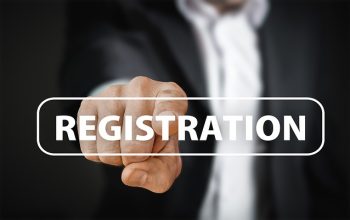License plate verification is a powerful tool in the fight against vehicle fraud. By performing a simple license plate lookup, individuals can ensure the legitimacy of car registration and ownership. This process involves cross-referencing the license plate with official DMV records to verify registration status and detect cloned vehicles.
This article explores the importance of license plate verifications, outlining its benefits for buyers and owners, while providing a step-by-step guide on how these checks work. From understanding car registration status to performing a VIN ownership verification through DMV registration lookups, we uncover why this process is crucial in today’s market.
- Understanding License Plate Verification: A Key Component in Vehicle Security
- How Does a License Plate Lookup Process Work? Step-by-Step Guide
- Benefits of Conducting Car Registration Status Checks for Buyers and Owners
- Ensuring Legitimacy: The Role of DMV Registration Lookups and VIN Ownership Verification
Understanding License Plate Verification: A Key Component in Vehicle Security

Understanding License Plate Verification: A Key Component in Vehicle Security
License plate verification is a crucial process that forms the backbone of vehicle security and ownership confirmation. It entails a simple yet effective method of cross-referencing a car’s license plate with its associated registration records. By conducting a DMV registration lookup or using online tools for a car registration number search, individuals can access critical vehicle registration details. This practice plays a pivotal role in detecting cloned vehicles, where fraudsters duplicate a legitimate car’s identification to commit crimes.
Through this verification, buyers and current owners gain assurance that the car’s registration status is genuine. It also facilitates smooth transactions by enabling a thorough vehicle title check during sales or transfers. Moreover, license plate lookups aid in prompt car registration renewal, ensuring compliance with local laws. This simple yet powerful tool serves as a vigilant guardian against fraud, offering peace of mind and reinforcing the integrity of vehicle ownership verification by VIN.
How Does a License Plate Lookup Process Work? Step-by-Step Guide

A license plate lookup is a straightforward process that leverages specialized databases to cross-verify car registration information. It begins with the input of the vehicle’s license plate number, which can be done manually or through automated systems. This data is then sent to state DMV (Department of Motor Vehicles) databases that hold comprehensive records on all registered vehicles. These databases compare the provided license plate against stored records, returning detailed results if a match is found.
The results typically include the vehicle’s make, model, year, owner’s name and address, as well as the car’s current registration status—whether it’s active, expired, or flagged for any anomalies. For cloned vehicles or those with falsified registrations, the system will highlight discrepancies, aiding in their detection. This transparent process empowers individuals to conduct quick and reliable vehicle ownership verification, enhancing safety during car purchases and providing peace of mind for existing owners.
Benefits of Conducting Car Registration Status Checks for Buyers and Owners

For car buyers, conducting a vehicle ownership verification through methods like a DMV registration lookup or license plate lookup is an essential step in ensuring their investment’s legitimacy. By searching for the car registration number or performing a VIN check, prospective owners can uncover any history of accidents, outstanding loans, or past registration issues that might affect their purchase. This process offers peace of mind and helps buyers avoid potential fraud, ensuring they’re acquiring a vehicle with a clean title and valid registration status.
Current vehicle owners also benefit from regular car registration status checks. These verifications enable owners to confirm the authenticity of their vehicle’s registration details, especially when considering a sale or transfer of ownership. A simple license plate lookup can help detect cloned vehicles or any discrepancies in registration records, safeguarding both the owner and subsequent buyers. Additionally, staying on top of car registration renewal ensures compliance with local laws and prevents potential legal issues related to vehicle ownership.
Ensuring Legitimacy: The Role of DMV Registration Lookups and VIN Ownership Verification

Ensuring the legitimacy of vehicle ownership is a critical step in combating fraud and ensuring safety on the road. DMV registration lookups play a pivotal role in this process by allowing individuals to verify that a car’s license plate corresponds to its official registration records. This simple yet powerful tool helps uncover cloned vehicles, where criminals replicate legitimate license plates for nefarious purposes.
By performing a DMV registration lookup or a vehicle title check using the car registration number search function, owners and potential buyers can confirm the ownership history and current status of a vehicle. This includes verifying that the Vehicle Identification Number (VIN) matches the registered owner, ensuring that all registration details are accurate and up to date, including any recent car registration renewals. This comprehensive ownership verification by VIN is essential for maintaining a transparent and secure automotive market.
In today’s digital era, ensuring vehicle security is paramount. License plate verification, facilitated through DMV registration lookups and car registration number searches, acts as a robust shield against fraud. By confirming vehicle ownership through methods like VIN ownership verification, buyers and current owners alike can enjoy peace of mind, knowing that their transactions involve legitimate cars with valid registration status. This simple yet powerful process revolutionizes vehicle title checks, making it easier to navigate the world of car registration renewal and maintain accurate vehicle registration details.



